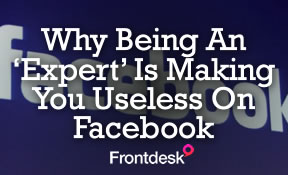 I was thinking this week about how Emergency Medicine physicians are perceived in busy Emergency Departments.
I was thinking this week about how Emergency Medicine physicians are perceived in busy Emergency Departments.
For those of you who aren't medical people or don't work in Emergency Medicine, a busy ER is a crazy place. There is a constant push to make every action more efficient. Patients are being taken to and discharged from rooms as quickly as possible so the ill in the waiting room can be evaluated. Activities that aren't completely necessary are eliminated, simply because of the crush of needy people waiting for care.
There is a mountain of medical literature discussing the issue of ER overcrowding, and a current focus on training physicians to eliminate any testing that isn't absolutely required. Twenty years ago physicians working in ERs did full work ups on patients. Today, the focus is on singling out that handful of tests that will give the physician a clear picture of the patient's pathology, so a decision can be made as soon as possible and the patient moved into the hospital or discharged home.
Now, insert into this chaos two physicians, we'll call them Dr. Flippant and Dr. Effective (for the sake of comparing two styles and nothing more, let's make these physicians both male).
Dr. Flippant walks into a patient room having barely reviewed the chart. He interacts with the patient in a superficial way, barely asking questions because he really isn't interested. He does a cursory physical exam, orders no tests, and sends the patient home. His total time in the patient's room is under three minutes, after the patient waited hours to see him.
Now let's look at Dr. Effective.
Dr. Effective walks into a patient room having thoroughly reviewed the patient's data. Because his ER is so busy, he begins his patient assessment the moment he enters the room, guaging the patient for unlabored breathing, ability to move in a symmetric and balanced way, and appropriate responses to questions. He notes the color of the patient's eyes and skin, the smell of the room, and whether the patient is perspiring. All these things are taken in within the first few moments of the physician-patient interaction. Dr. Effective asks a few questions that are targeted, and purposely phrased to limit long responses but give maximum data for his decision making. He does a focused physical exam, limiting the exam to the body part or parts that will quickly allow him to determine if this patient needs further testing. Once complete, his very targeted-- yet appropriate and effective-- assessment has determined that the patient needs no further testing, and he sends the patient home. His total time in the patient's room is under three minutes, after the patient waited hours to see him.
Now here's the problem with the perception of these two physicians...
In each case above, the time constraints limited these two physicians to less than three minutes with their patients. However, one of these examples was a flippant, sloppy physician and the other was an effective and appropriate physician.
The difficulty is that if you're the patient in the room, it's almost impossible to ascertain which example is treating you. Both spent little time at your bedside. Both asked few questions. Both did limited exams, and neither ordered any tests.
Now, if you couple this with the confounding variable that Dr. Flippant is a charming, visually appealing person, and Dr. Effective has a more curt personality and frumpy look, the perception issue becomes even more difficult.
To the untrained eye, these physicians did the exact same thing with both their patients. The difference between these physicians was the processing that was going on internally.
Even an excellent physician-- working efficiently and effectively taking care of a large number of patients-- in a busy ER frequently gets feedback from patients and families that he "didn't spend time with me" or he "wasn't interested in my problem" or he "didn't even order any tests." It is difficult to explain to these idividuals that the physician was actually acting appropriately, when the patient is incensed that after their long wait time "that's all the doctor did."
What's worse, if you're the patient, you have really no way of determing which doctor took care of you. How can you be assured that you saw Dr. Effective and not Dr. Flippant? The unfortunate thing is that unless you have medical training or a medical family member interacting with the physician, it's almost impossible.
In my view, this is one of the most difficult issues in contemporary Emergency Medicine-- the very subjective and often skewed perception issue. It's unfortunate, and it's a big problem for patients, and for the good physicans out there trying to take care of them.






 Post a Comment
Post a Comment





